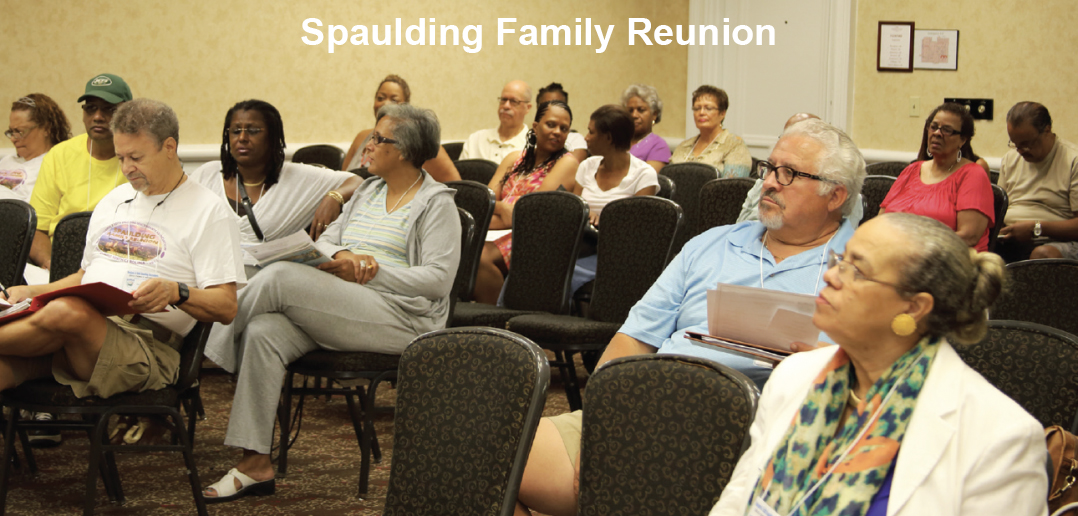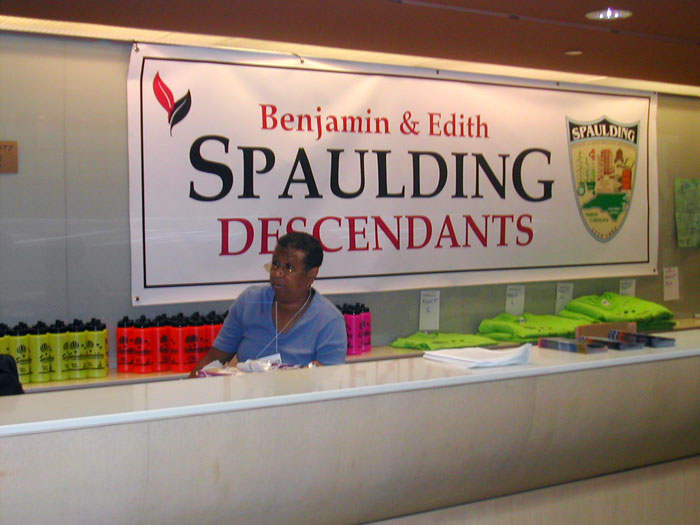
Governance

Rule your reunion
by Edith Wagner
Every successful reunion requires good leadership. And it’s best to not do it solo. There is much evidence that one person can organize a reunion alone. But is it fair? And does it generate the greatest possible commitment? One person must be the leader, but if that person also delegates tasks and inspires lots of volunteers, there will naturally be more interest in and ownership of the reunion. Here are some ideas about reunion leadership for your consideration and also to keep in mind when reunion leadership must be passed on to the next leader.
In families with regular reunions, there are many forms of sharing the load. When delegating, make sure each volunteer understands the purpose of the task. If necessary, write instructions, read them together, then ask questions to make sure the job is understood. Don’t take on everyone else’s overload. Find others to help.
Each of the six families comprising the McGinty Family Reunion has a representative on the Board. Within the extended family structure, family talents come to light. As extended families come to know one another, members learn to use the talents of others to mobilize resources. Members learn to use knowledge, expertise and resources within their own families.
Organizing your reunion by yourself can be lonely and may not get the results you want. Anyway, it’s lots more fun when you share the planning, work and worries. Involving others as early as possible means help ranging from moral support (no small thing!) to taking charge of large and small details. Early involvement should also include monetary contributions to defray start-up phone, printing, and postage costs, and deposits soon after.
Listen to all ideas. Of course, people who make suggestions should be ready to help or assume responsibility to carry them through! Some aspects of reunions — such as newsletters, parts of the program, decorations or food — can be accomplished by enthusiastic, dedicated individuals who often have special talents. Some of the computer-related stuff can even be handled by younger family members.
Reunions are best when ruled by consensus — equality and ownership are great group motivators. Every member owns a reunion equally. Every member has a voice — those who choose not to use their voices choose to enjoy what others plan.
Beth Gay of Moultrie, Georgia, starts with relatives who live nearby. It can be just a committee of two or three to make basic decisions. 1) Do you need officers? 2) Who will keep records? 3) Is a chaplain needed? She suggests monthly family meetings. Yes, every month; Sunday afternoon is her best time. Call everyone about the meetings. Better yet, send reminder post cards. Everybody is busy — it’s easy to forget. Remind everyone every month.
During the meetings you can do lots of things together. Gay suggests work on a quilt, scrapbook, cookbook or banners and signs. Then, mailings; newsletters, fliers and invitations. “The greatest thing gained at meetings,” she says, “is that you become better acquainted and all this work, planning and caring will show at your reunion.”
Emma J. Wilson summarized the reunion of descendants of Mary Cage Givens Gilmore in Nashville, Tennessee: Committee members in Arkansas, Texas and Ohio planned the reunion at a meeting during the year-end holidays. An agenda helped spark ideas and smooth details. They discussed activities, mapped strategies, decided upon a site coordinator, treasurer, someone to be in charge of correspondence, t-shirt selection and the family tree. Each carried out assigned tasks from their homes and kept expenses reasonable.
Melenda Gatson Hunter of Lathrup Village, Michigan, writes “In retrospect, I think it’s really important for families to have reunions to teach children about their heritage. Reunions are a lot of work but it’s worth it to see your family. You don’t know if you will see some of them at the next reunion.”
For the Wills Family Reunion, Hunter broke a huge challenge into manageable increments and assigned/cajoled talented family members to the right jobs: chair, co-chair, treasurer, hospitality, registration, souvenirs and t-shirts and tour. Hunter, a family historian with high-tech computer skills, took on program planning. She created a display board and memory book; collected for and assembled goodie bags and door prizes.
“Reunions are a lot of work but it’s worth it to see your family. You don’t know if you will see some of them at the next reunion.”
New people mean fresh ideas. People who work to implement reunion goals will continue to support and improve it. Avoid burnout by sharing the workload with everyone.
Share the load
Teresa Burks, Canton, Georgia, represents the Amos Green Family Reunion. She wrote to ask that we “stress the importance of having everyone work together to help make a reunion successful. This includes sharing costs and showing the needed commitment on seriously needed family projects. One person can’t do it all!” We could not agree more and suggest to all reunion organizers that they never “do it alone” and to delegate like your life depended on it.
Two wonderful resources from The Family Reunion Institute
Bylaws for a Family Organization by Georgia M. Burnette. 1999, spiral bound, $8.00.
CONTACT Family Reunion Institute, [email protected] for instructions to order.
As often happens, recalling the frustration of finding nothing to guide them, Georgia Burnette, developed a prototype for family association bylaws. Descendents of Ellis and Minnie Burnette began sporadic reunions in the early 1970s until regular gatherings of all six branches began meeting in earnest in 1991. It was not long before many members felt the need to change the purpose of the reunion. In 1997 they experienced a very successful “working, thinking, decision-making” reunion. Using the expertise of family members they included workshops exploring family health history and financial planning. Also, significantly, they focused reunion activity on forming a formal family association including the adoption of bylaws, fees and committee structure.
For families who are at a point they wish to pursue a more formal organization, Bylaws for a Family Organization is an essential tool. Each family is going to have to tweak and tailor the outline to their own unique needs but the outline and direction are invaluable and highly recommended.
Family reunion philanthropy
A new pamphlet from The Family Reunion Institute is an important and detailed outline for families eager to give back. While directed to African American families, this information can be of great benefit to all families. Based upon the knowledge that many family reunions are already involved in their own philanthropy (providing scholarships, funds for needy members or medical research or using inherited property to endow charitable funds), more are now encouraged to do the same. The pamphlet, African American Family Reunions and Philanthropy explains reunion purposes (celebrating, nurturing and passing along heritage) and suggests activities to enhance these purposes at the reunion. At reunions, for example, it is suggested that young members be involved with essay or oratory contests, celebration of spiritual traditions, discussions of charitable giving, workshops to encourage philanthropy). For more information, send SASE to Family Reunion Institute (see above for address).


Podcast – Leadership Part 2, emphasis on committees

Podcast – Leadership Part 1

Ruling the reunion



